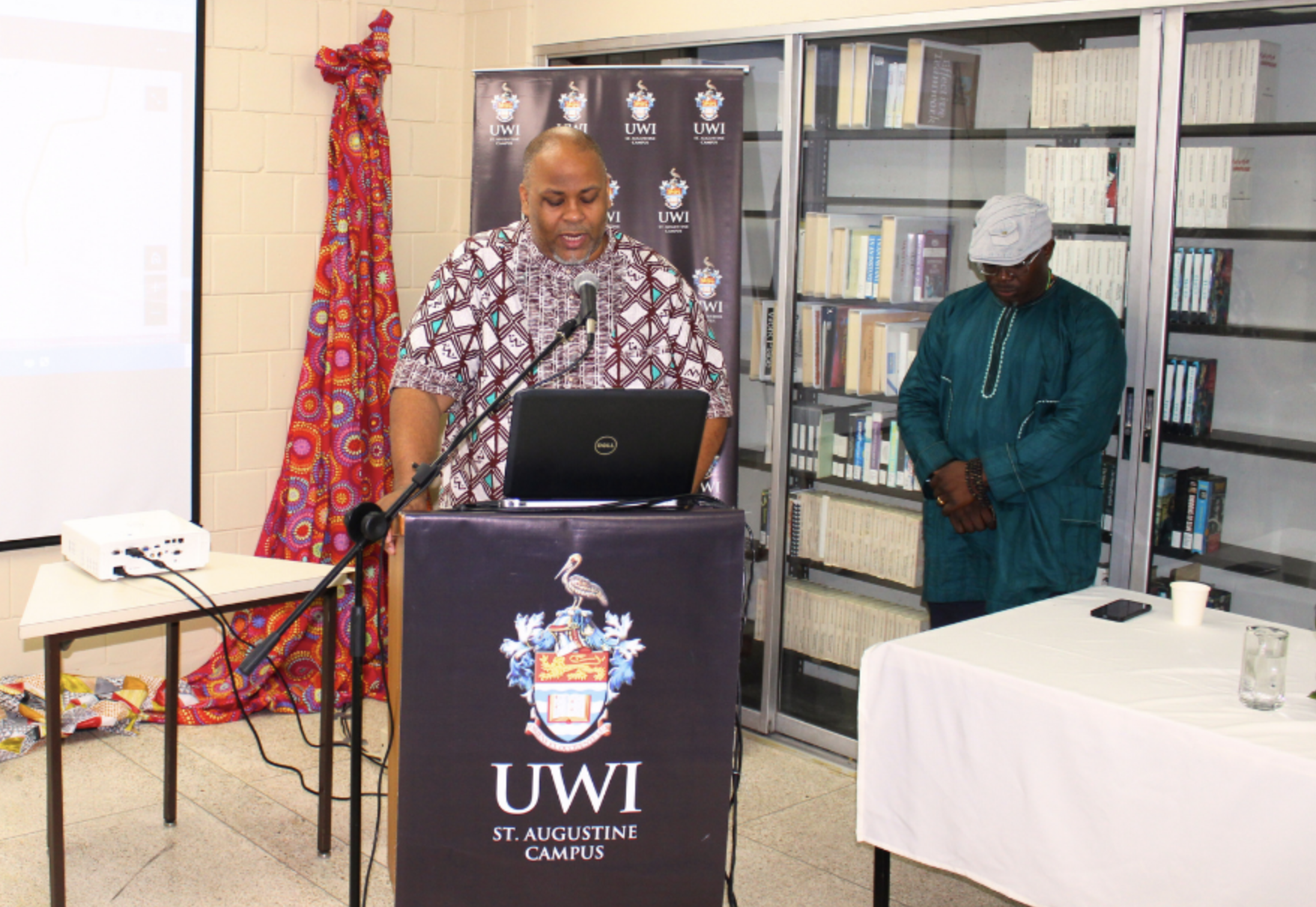The Black Consciousness Festival Launches "Project Namescapes"
October 24, 2023
The Black Consciousness Festival
The Black Consciousness Festival (TBCF) evolved out of the University of the West Indies (UWI), St. Augustine. Up to 2019, students of the Brazilian Studies Programme of the Department of Modern Languages and Linguistics commemorated and celebrated Brazil’s Black Consciousness Day on November 20 led by the team of staff, Dr. JoAnne Ferreira (Coordinator), Heather MacIntosh (Portuguese Instructor) and Sean Samad (Brazilian and Lusophone cultures lecturer). This day was proclaimed a public holiday in some states of Brazil in 2011. It recognises the freedom fighter Zumbi dos Palmares who led the resistance of many enslaved Africans in Brazil and led the largest free settlement of fugitive Africans for more than 15 years.
In 2020, the decision was taken to expand the commemoration into a month-long public Festival, which engaged and raised the awareness among a larger and differentiated audience. The tagline of PRIDE, POWER AND PRACTICE is based on the definition of what Black Consciousness is meant to achieve coined by Steve Biko in 1971.
Goals
The Black Consciousness Festival is a global platform that connects people of African descent with each other by sharing and encouraging exchange of information, traditions, histories, intentions, traumas, celebrations, legacies, and stories connecting to pride, power and practice.
The festival examines the legacy and continued need for the resistance of people of African descent to the systemic oppression that separated us from ancestral lands and continues to oppress and depress the diaspora to this day.
The festival builds awareness around how each of us can take the necessary steps for restitution (healing) and reparation (repair). This is a festival seeking the WHY and the CONNECTIONS.
What we do
To date the festival has leveraged the increased connectivity that happened because of COVID-19 quarantine scenarios and focused on the creation of virtual spaces to bring us together. The fantastic people of African descent doing important work around the globe are invited to share with the audience about their thoughts, perspectives and goals. The festival team curates conversations that shed light on important themes and issues for all of us. One of the areas the festival has worked hard to surpass is the issue of the many language barriers that exist across the diaspora. Effort has been made to involve and encourage participation and perspectives from our Portuguese, French and Spanish speaking cousins, embodying a keen understanding of the African proverb that says, “If you want to go fast, go it alone. If you want to go long, go with others.”
The current Board of Directors leading the festival is made of Erica M.B. Ashton (Executive Director), Sean Samad (Content and Communications Director), Ival J. Grant-Williams, Nicholas Ward, Tyker Giselle Phillip and Anderson Gonçalves.
Impact of the festival
The festival has hosted over 90 conversations between over 180 participants from countries spanning North America, Central America, South America, the Caribbean, Europe and the African continent. Apart from the annual festival that revolves around the November 20th day of recognition, the festival has hosted a Youth festival, a feature on the work and impact of Earl Lovelace and his works, and a series of conversations focused on the global reparations movements.
Intended impact of Project Namescapes
Project Namescapes is a visual narrative project designed to raise awareness and prompt discussion about the histories, names, connections, stories and silences connected to the landscapes in Trinidad and Tobago. Building on the work done at The Centre for the Study of the Legacies of British Slavery at the University College London, research has been done to identify and map the names and locations of plantations that existed in Trinidad and Tobago when they were European colonies, with a view to capturing and sharing stories from current residents. Using ARCGIS Technology, historical maps will be overlaid with contemporary maps to illustrate the shifting boundaries, names and ecologies over time.
It is hoped that these data, images and artefacts will be used for a national dialogue, which will include group/school/community discussions where people from the contemporary communities will be invited to view, reflect and engage with the data through a variety of mediums.
Director of Content and Communications Sean Samad noted that a main impact of the project is also to give the national community an unheard, alternative view of the names that remain to characterise our spaces. “Most citizens are unaware that these names were given to the spaces they are in today when they were demarcated as plantations – the sites of chattel enslavement of Africans and those of African descent, East Indian indentureship and the genesis of European plantocracy and globalisation. These landscapes are the sites of countless activities, stories, and hold the blood, sweat, tears and bodies of many who shaped the nation we live in today. These names are culturally specific and carry meanings that we are yet to know and understand. Project Namescapes intends to urge us all to begin this journey.”
Their website is www.theblackconsciousnessfestival.com.
Archives of past festival conversations can be found on their YouTube channel at https://www.youtube.com/@TheBlackConsciousnessFestival and their Facebook page at https://www.facebook.com/TheBlackConsciousnessFestival.

